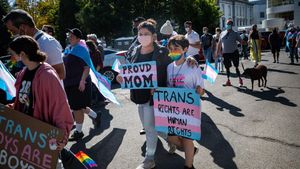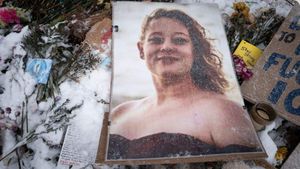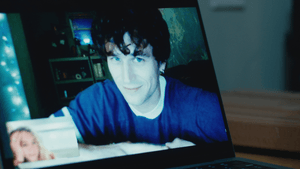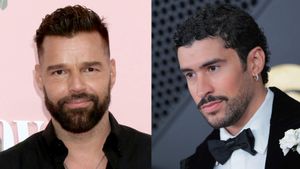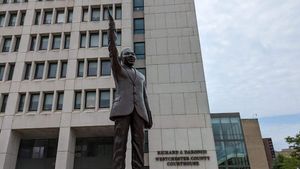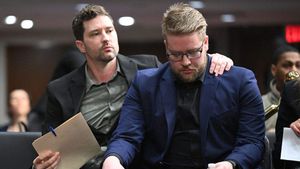When a 40-year-old German man recently complained of a red spot on his nose, a family doctor initially diagnosed him with sunburn. But when the red dot turned black and began to rot, the man was rushed to the University Hospital in Bonn, where medical staff gave multiple frightening diagnoses.
He developed lesions around his mouth and body due to a monkeypox, or MPV, infection confirmed by PCR testing.
Several additional tests, including those for sexually transmitted infections, revealed that the man had both advanced HIV and severe syphilis.
Due to the confluence of infections, his immune system had been significantly weakened, allowing necrosis or tissue death to occur opportunistically.
The German's severe MPV case was documented in the medical journal Infection.
"The patient had never been tested for sexually transmitted diseases (STI) before," the report states.
The man received TPOXX for seven days, antiretroviral therapy for HIV, and antibiotics for syphilis.
The skin lesions have dried out, and some swelling in the nose has subsided, doctors observed.
As of yet, most MPV infections have been mild, and people living with controlled HIV do not seem to be at risk of severe illness. However, in the context of severe immunosuppression and untreated HIV infection, MPV infection may be severe, as the authors wrote in this case.
In Houston, Wesley Wallace shared shocking photos of himself with MPV in July. After the Independence Day weekend, the 42-year-old developed symptoms of sunburn that ended up being MPV. He shared the shocking photos of lesions around his mouth on social media and received much international media attention.
He told The Advocate, Plus's sister publication, at the time that it was important to him to share his experience to decrease stigma and to show others who may contract MPV that they are not alone.
Wallac updated The Advocate on his situation Friday morning.
"I am so much, so so so much better," he says. "It's healed a little bit better than I thought it would, but I have a little further to go."
He says that he doesn't have much permanent scarring or cratering, which he had worried about, but that much of his face is pink where the lesions had been.
"I'm using a bit of makeup, so it's not so noticeable," he admits. He says he's not too concerned about what was seemingly the end of the world just a few weeks ago.
"People know that [the scars] are there because they're mostly looking for them," he joked.
He says that the situation has taught him a lot. He said he learned about isolation and loneliness, judgment and stigma, and the power of shining a light on the situation, sharing it with the world, and helping others.
"I pay more attention to what other people are doing now more than anything else because I've experienced it," he says. He explains that it's not in his nature to tell others what they cannot or should not do, but he says that the experience has given him the strength to educate others to consider safer activities when in group settings.
He says it does pause when he sees or hears of people who refuse to get vaccinated or won't consider adjusting their behavior.
"I don't want to say I shake my head when I see people doing stuff that I wouldn't do," he says.
"But at the same time, it's kind of like I want to shout out, 'hey, maybe don't do that, not because I'm trying to proselytize or am coming from some high moral ground, it's just that I've gone through it and I don't want anybody else to experience what I had to go through."


































